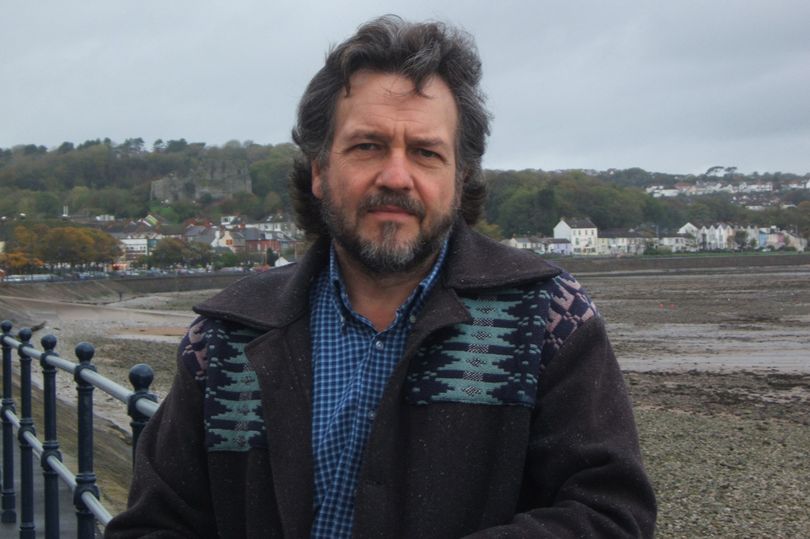Dylan Moore delights in a ragbag collection of essays celebrating the life of longtime friend of the IWA Nigel Jenkins
I am a man who loves books, and this posthumous collection of Nigel Jenkins’ miscellaneous writings is my favourite type.
It might sound odd, but if I was backed into a corner and forced to pick my favourite literary genre neither fiction nor poetry would rise to the top of the list, nor even any of the multiplicity of genres that fall somewhat awkwardly under that catch-all title ‘creative non-fiction’. No; my favourite books are less beautifully curated essay collections and more weird miscellanies thrown together after the fact.
The occasion of this one, that perfectly fits the tradition which is not a tradition – books like Other Colours by Orhan Pamuk, Working the Room by Geoff Dyer or Changing My Mind by Zadie Smith – is that Nigel Jenkins’ friends, the businessman and literary entrepreneur Ali Anwar and the prolific writer and broadcaster Jon Gower, have got around to assembling a kind of memorial volume, a sort-of follow up to the H’mm Foundation’s previous Jenkins tribute, Encountering Nigel. And in an age where marketing is king, it is refreshing that the publication is not tied to an anniversary – although it does coincide with the launch of a Nigel Jenkins Literary Award.
The essays presented here were (mostly) not written to be published in book form, and a good number of them were originally articles for the welsh agenda (although as one might expect of a writer as prolifically involved across the Welsh literary scene as Nigel Jenkins, there are also pieces from Planet, Poetry Wales, Wales Arts Review and Wales Online, as well as from the Guardian, Independent and Radio 4).
Many of the essays here are rooted in the landscape of Nigel’s beloved Gower peninsula, and the city of Swansea that was the hub of his work in later life as a much-loved teacher at the university there.
The collection kicks off with ‘Blindfold in the land of our birth’, Jenkins’ contribution to the IWA’s quarter-century anniversary volume 25/25 Vision: Welsh horizons across 50 years. Originally titled ‘Live the Wales you want’, the essay brilliantly fulfils its brief to survey the politico-cultural landscape, and ends with an exhortation:
‘Until Wales regains its long-lost independence we should live the Wales we want. The socialist republic of Cymru is the land in which I and many others have been living for years. Come and join us.’
This rhetorical flourish is a great scene setter for the rest of the book, encapsulating as it does so much about Nigel Jenkins: a patriot and radical with an open mind, independent spirit and generous heart.
I never met Nigel, but by the end of this book the reader cannot help but be on first name terms with its author. The man shines through both his own writing and the reminiscences of friends, which are movingly placed near the end of the collection. The great and the good of Welsh literary life – Menna Elfyn, Peter Finch, John Barnie, Professor M. Wynn Thomas, Jon Gower – line up to pay their respects.
Innovative. Informed. Independent.
Your support can help us make Wales better.
The fact that some – like Meic Stephens – have themselves now passed on, and the politicians – Plaid Cymru’s Bethan Jenkins (now Sayed) and then IWA Director, now Welsh Labour’s Deputy Minister for Climate Change, Lee Waters – have changed names and roles since then only serves to underline the swift passing of time since Nigel Jenkins’ untimely death in 2014.
Nigel, of course, would have welcomed many contemporary developments – the shift from Welsh Assembly to Senedd Cymru, from AMs to MSs, and even the very recent cooperation deal between Labour and Plaid Cymru – perhaps seeing them as inevitable steps along the road toward realising his utopist ideal of a socialist republic of Cymru.
Many of the essays here are rooted in the landscape of Nigel’s beloved Gower peninsula, and the city of Swansea that was the hub of his work in later life as a much-loved teacher at the university there (graduation ceremonies, we learn, still feature a poem he composed). With Nigel as guide, we explore the ‘ghost farms’ of Gower’s agricultural crisis, consider the claims of Swansea’s neglected post-industrial heritage for wider celebration, and enjoy National Theatre Wales’ second-ever production ‘Shelf Life’ and poetry at the Pontardawe Folk Club through the writer’s keen eye and vivid reminiscence.
The volume title is well chosen, lifted as it is from Nigel’s profile of the Algerian writer and journalist Soleïman Adel Guémar, who settled in Swansea following persecution in his homeland. It sits centrally in the collection, a perfect exemplar of Jenkins’ ability to move between the lyrical and thoroughly researched, personal and political, local and global, with clarity, ease and linguistic aplomb.
Craft and curation are beautiful things, but life – and the writing life especially – happens as a hodgepodge.
There are other fascinating profiles – of the Anglo-French-Canadian concrete poet Peter Meilleur aka Childe Roland, the English poets David Cobb and Adrian Mitchell and Welsh artist Evan Walters – and in my view these serious essays are enhanced rather than undermined by their presence in a collection that also includes a ‘N.J. Desert Island Ten’ of Jenkins’ favourite songs, a broadcast about reaching an age that was ‘Older than my dad’ for John Peel’s Home Truths programme, and the speech he made at his mother’s 80th birthday.
Quite apart from the simple enjoyment that can be found in reading almost anything this fine writer committed to paper, the borderline eccentric dolly mixture of content collected here serves as a brilliant way to underline the messy porousness of life. Not just Nigel’s, abundantly well lived despite its cruel curtailment at the young age of 64, but all of ours.
Craft and curation are beautiful things, but life – and the writing life especially – happens as a hodgepodge. This ragbag book is a beautiful reminder.
To purchase a copy of the book, contact [email protected].
All articles published on the welsh agenda are subject to IWA’s disclaimer.





